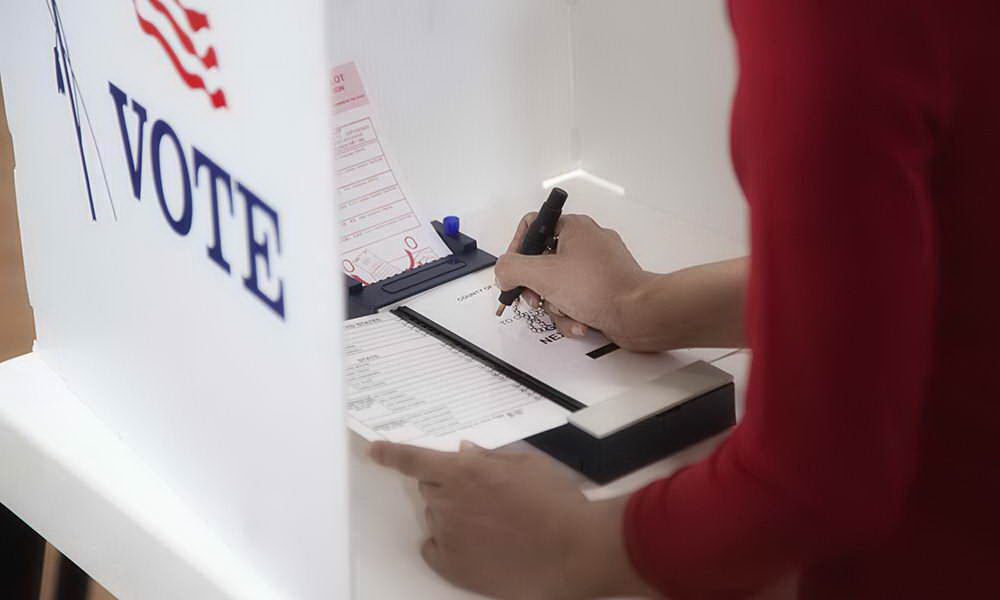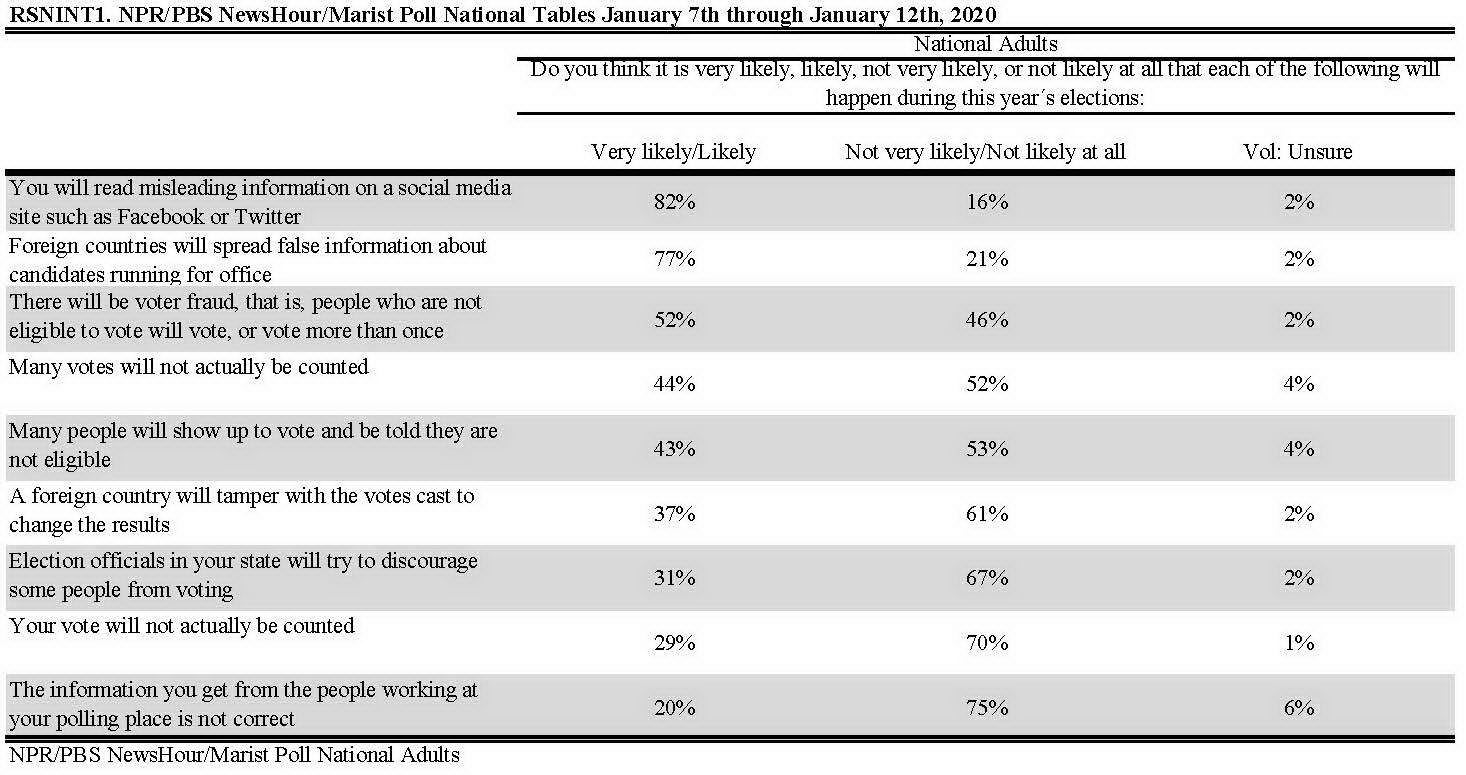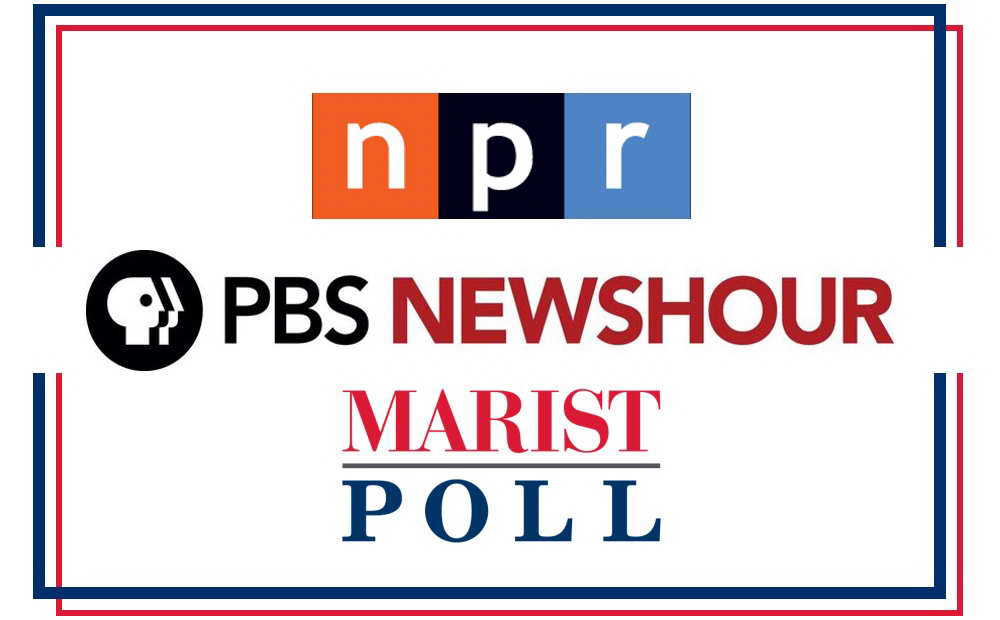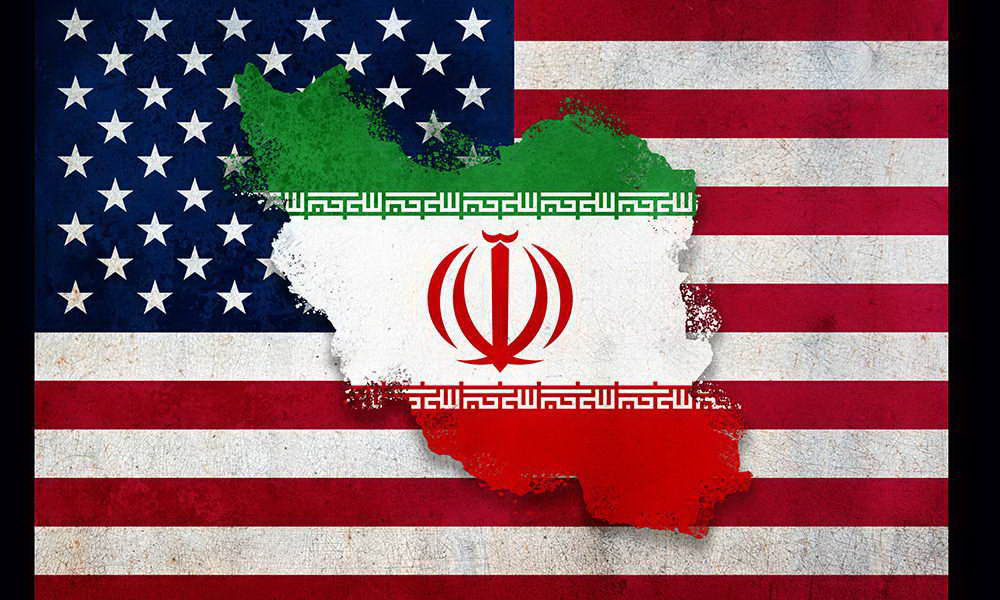In the contest for the Democratic nomination nationally, Bernie Sanders (31%) leads his closest competitor Michael Bloomberg (19%) by 12 points among Democrats and Democratic-leaning independents including those who are undecided yet leaning toward a candidate. Joe Biden (15%) and Elizabeth Warren (12%) follow. No other candidate receives double-digit support. When a similar question was reported in December, Biden received 24%, Sanders had 22%, and Warren had 17%. 13% supported Buttigieg, and Bloomberg’s support (4%) was in single digits.
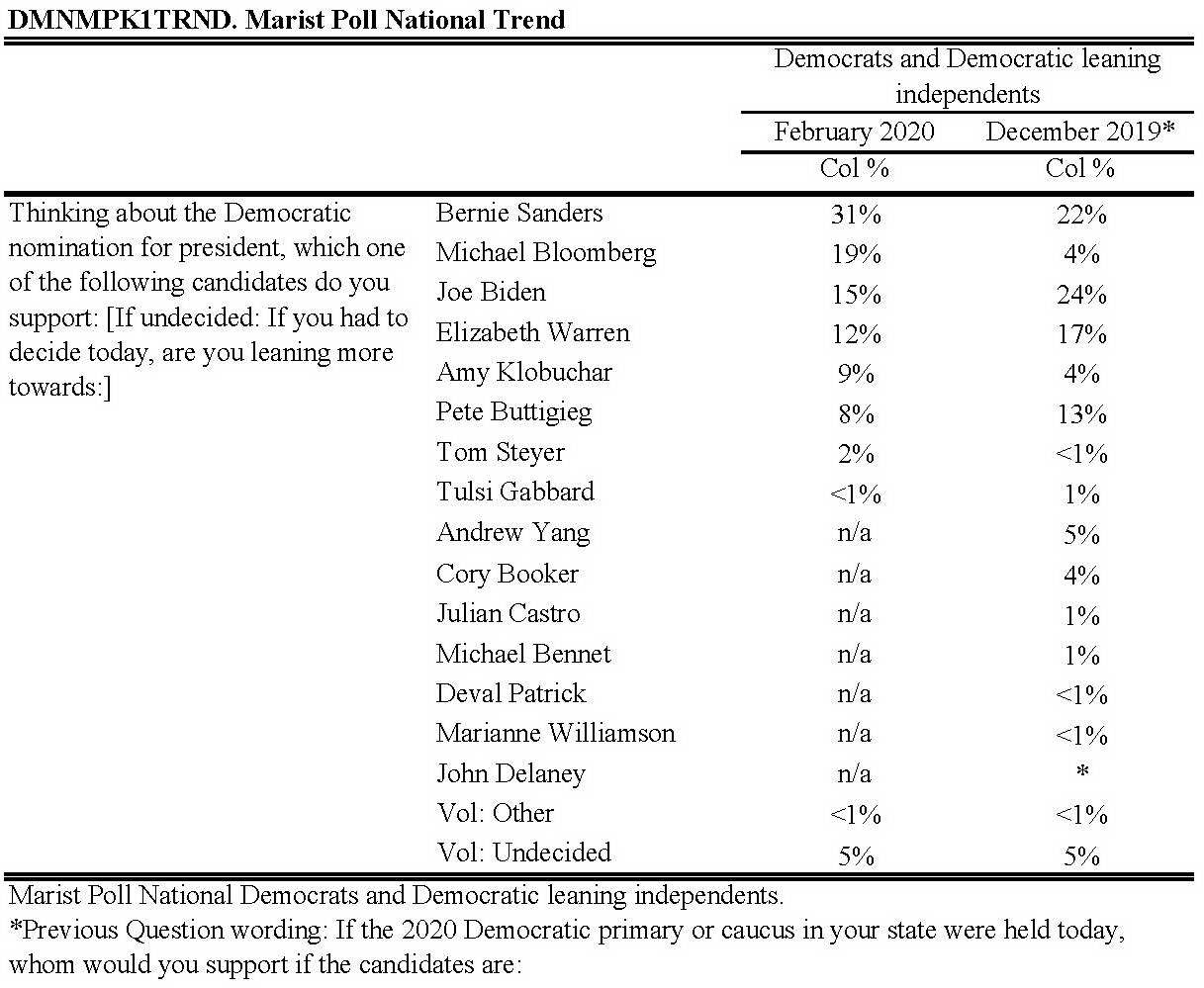
“Sanders has solidified his lead over the Democratic field while Bloomberg’s air wars gives him a solid second place in the Democratic field,” Dr. Lee M. Miringoff, Director of The Marist College Institute for Public Opinion. “Meanwhile, Buttigieg and Klobuchar’s strong showings in Iowa and New Hampshire do not extend to the national Democratic electorate at this point, and all of the candidates have faded with the exception of Sanders and Bloomberg.”
Sanders’ base is intact. A majority of Democrats and Democratic-leaning independents under the age of 45 years old (54%) and a plurality of those who identify as progressive (46%) support Sanders. However, Bloomberg has resonated among moderates and older Democrats. Bloomberg (29%) edges Biden (23%) among Democrats and Democratic-leaning independents who self-identify as moderate. Bloomberg (27%) has a similar advantage over Biden (22%) among those age 45 or older.
Warren is the second choice candidate of 23% of Democrats and Democratic-leaning independents with a candidate preference, bolstered by 45% of Sanders’ supporters who say they would consider Warren as their second choice. Biden and Bloomberg swap support. 28% of Bloomberg’s backers say their second choice is Biden. The same proportion of Biden supporters (28%) say they would opt for Bloomberg.

A majority of Democrats and Democratic-leaning independents (55%) say it is more important to have a nominee who has the best chance of defeating President Donald Trump in November. 42% say it is more important that the nominee shares their positions on most issues. These results are essentially unchanged from December when 54% said electability was the priority over 44% of the potential Democratic electorate who preferred a candidate that is closer to them on the issues. Supporters of Bloomberg (70%) and Biden (63%) are more likely than those of Sanders (38%) to consider electability to be more important. 60% of Sanders’ supporters prefer a candidate who shares their positions on the issues.
Despite their personal preferences, most Democrats and Democratic leaning independents are united in their desire to oust Trump from office. 76% say, if their candidate does not receive the nomination, they will vote for whomever the Democratic candidate is. Of note, Democrats (80%) are more cohesive in this position than those who identify as independents. 15% of independents report they will vote for someone else, and 12% say they will not cast a ballot for president.
In hypothetical general election tossups, Biden (50%) performs best against Trump (44%) among registered voters nationally. Bloomberg is +4 percentage points over the president while Sanders is up 3 points. Buttigieg and Klobuchar have a slim 2-point edge whereas Warren is +1 against the president.
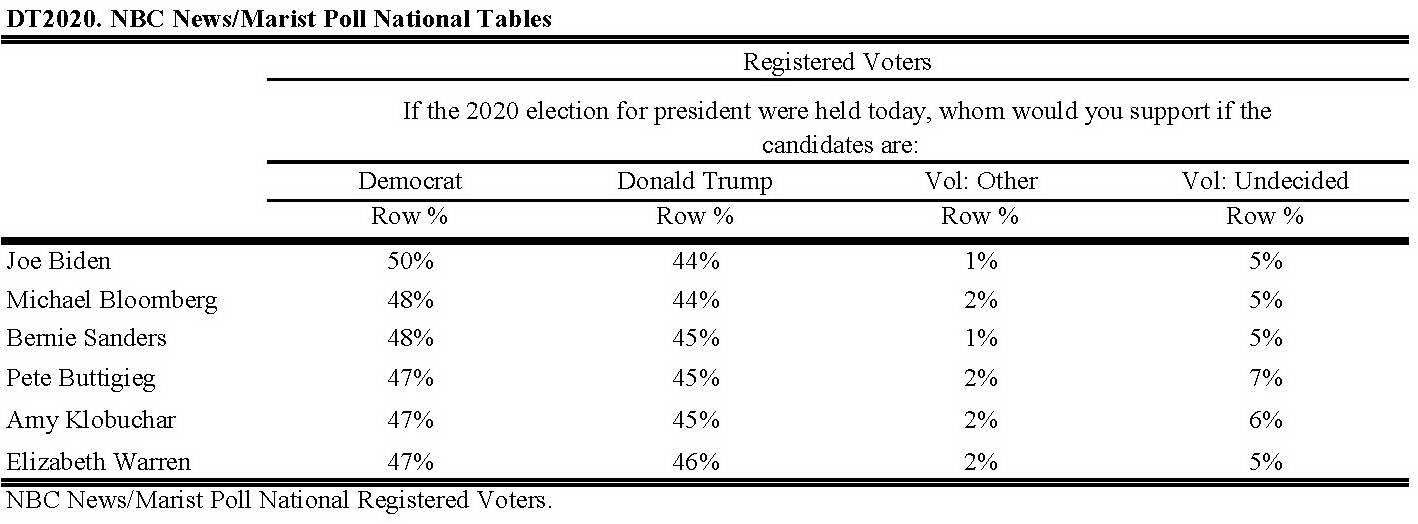
President Trump’s job approval rating is consistent. 42% of Americans approve of how he is doing his job, including 29% who strongly approve. 51% disapprove, including 40% who are strongly of this view. The president’s approval rating is statistically unchanged from January when 41% of Americans approved of the job he was doing and 53% disapproved.
“Despite positive numbers on his handling of the economy and an improved outlook on the direction of the country, President Trump’s overall job approval rating has not changed,” says Dr. Lee M. Miringoff, Director of The Marist College Institute for Public Opinion.
The president is viewed positively on his handling of the economy. 51% approve of his economic approach, and 40% disapprove. This is a 12-point shift since last September when 47% of adults nationally approved of how the president was handling the economy, and 48% disapproved.
Many Americans (66%) also perceive the economy to be working well for them personally. This opinion is due, in part, to the overwhelming perception of Republicans (93%) who consider the economy to be benefitting their wallets. 66% of independents agree. 29% of Americans, including a slim majority of Democrats (51%), do not think the economy is working well for them.
Americans are much more likely to have a favorable impression of a capitalist system than a socialist one. 57% of U.S. residents have a positive opinion of capitalism while a similar 58% have an unfavorable view of socialism.
Americans’ opinions about the direction of the nation have improved. 41% of residents think the nation is moving in the right direction. This is up from 35% last October and is the largest proportion of Americans with this view since March of 2012 (43%). 50% of Americans currently think the nation is moving in the wrong direction, down from 57% last time.
When thinking about November’s congressional elections, the Democratic candidate on the ballot (48%) has an 8-point advantage over the Republican (40%) among registered voters nationally. When last reported in November, the Democratic candidate (46%) was +5 points against the Republican (41%).
While a majority of Americans (53%) express a great deal or good amount of trust that elections are fair, this proportion has declined from 62% in January. 43% say they have little or no trust at all that the elections this year will be fair, up from 37% previously.
More than seven in ten Americans (72%), though, express confidence that their state or local government will run a fair and accurate election in 2020. This is a bump up from 68% last month.
Complete February 19, 2020 NPR/PBS NewsHour/Marist Poll Release of the United States
Complete February 19, 2020 NPR/PBS NewsHour/Marist Poll of the United States (Tables)


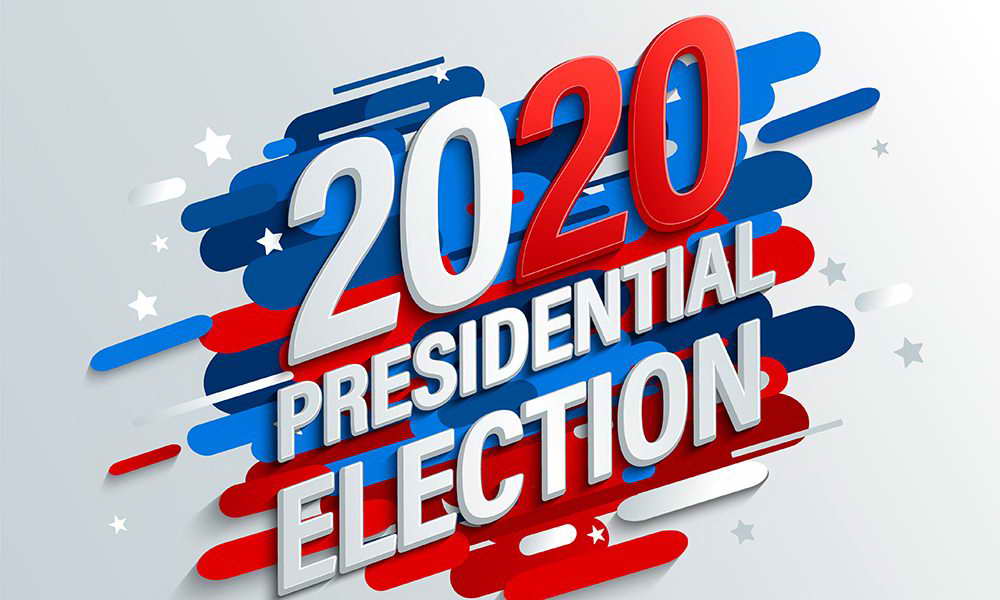
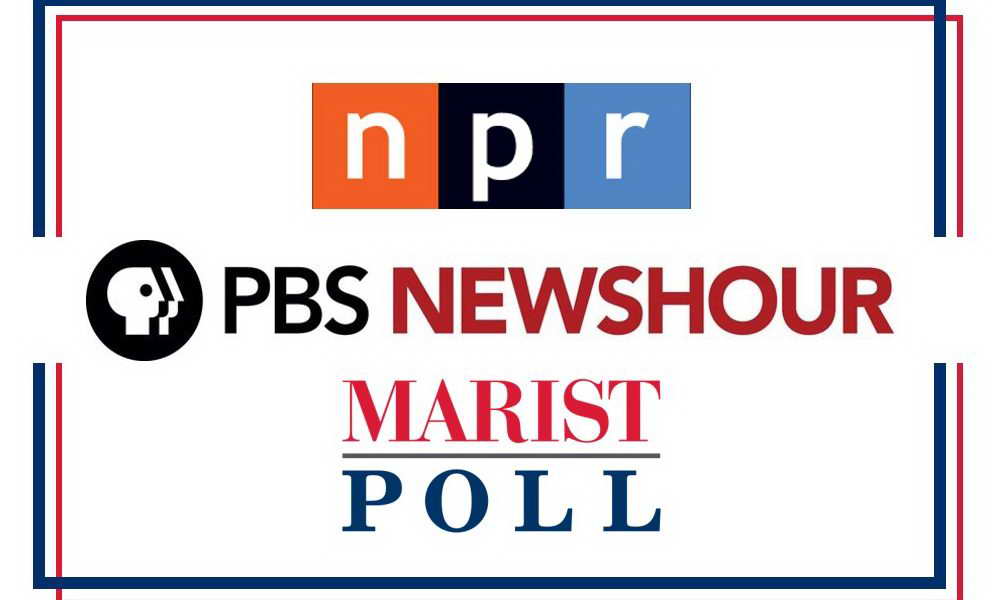
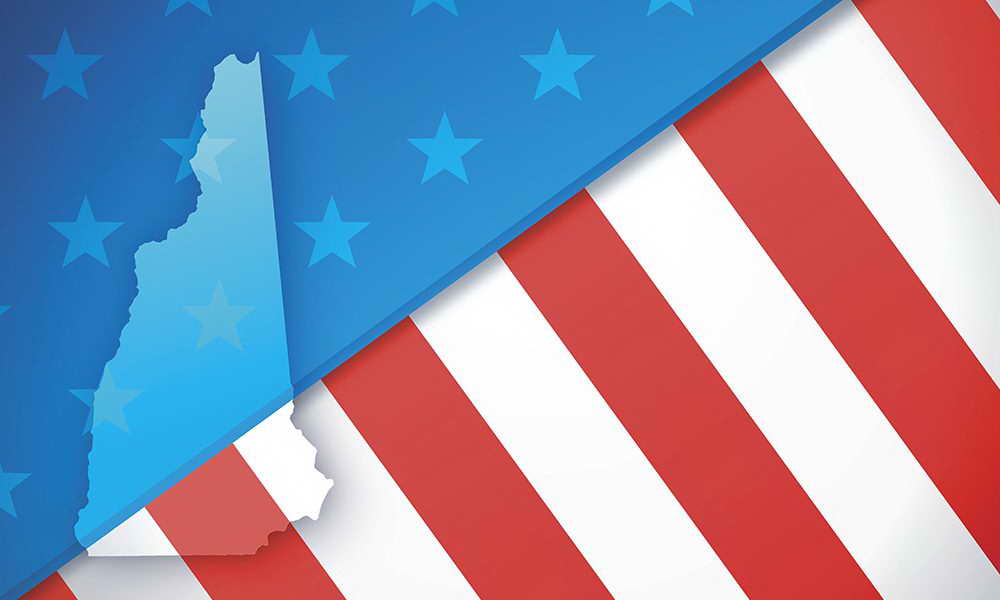
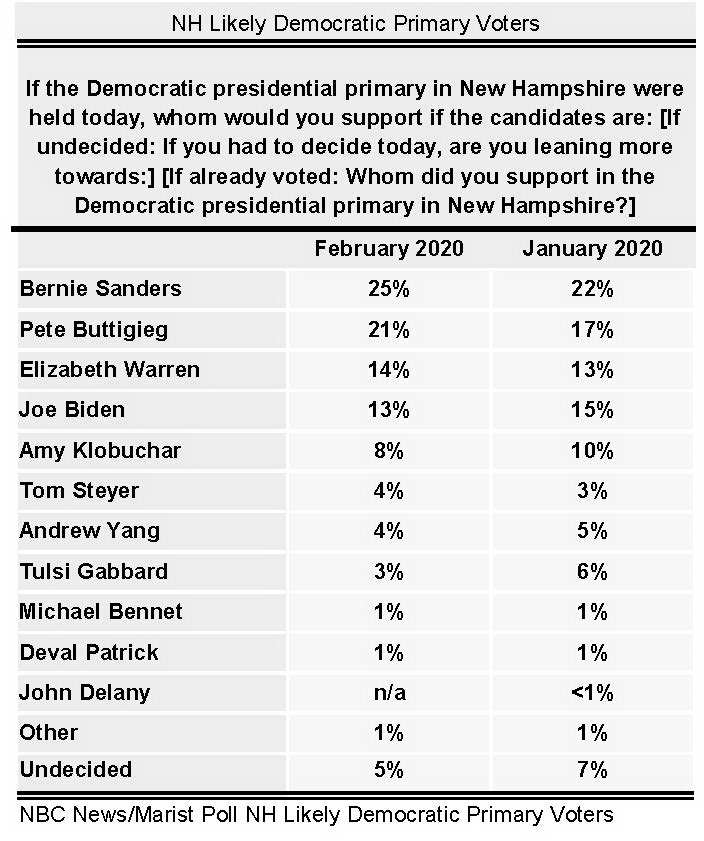
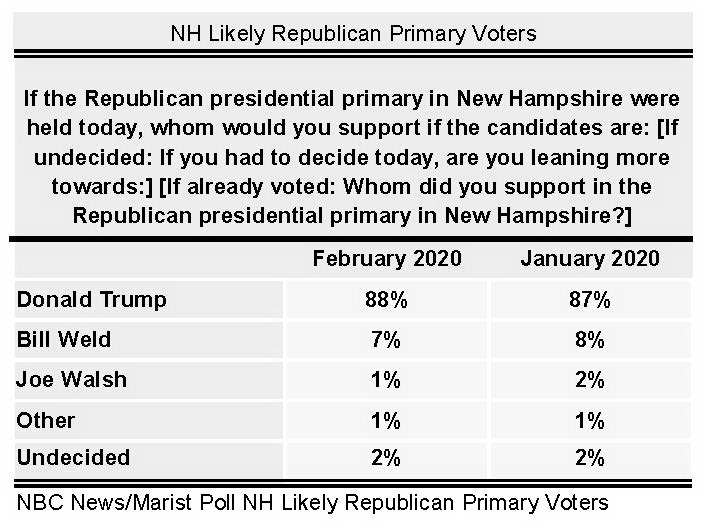
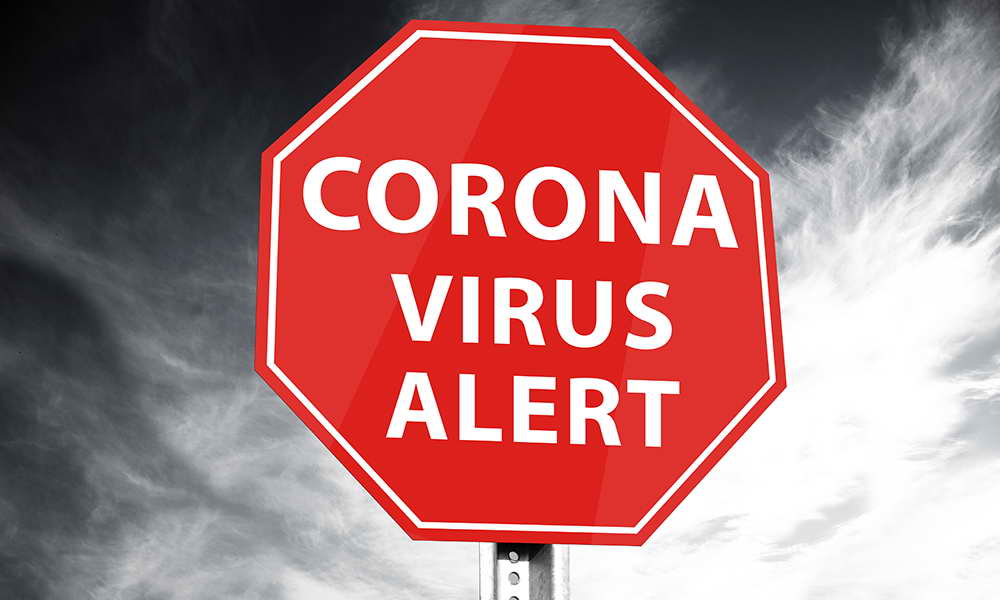
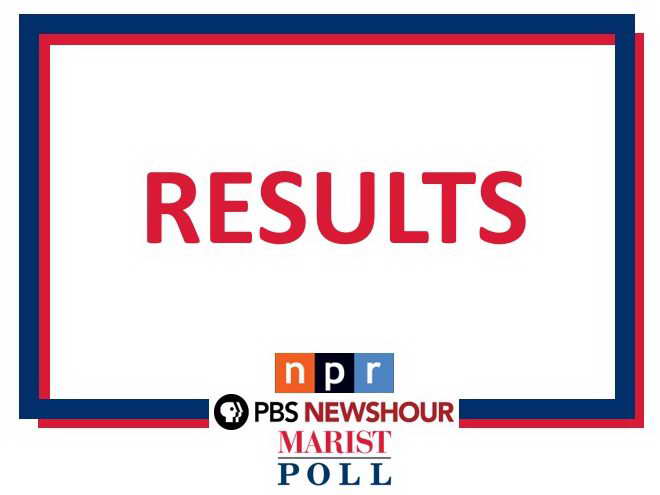
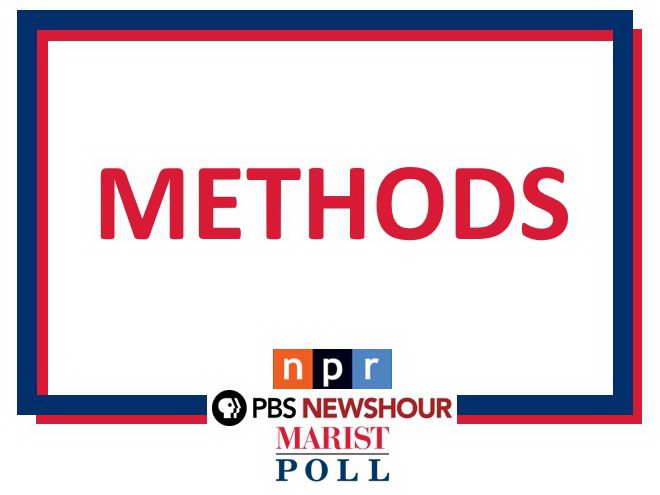
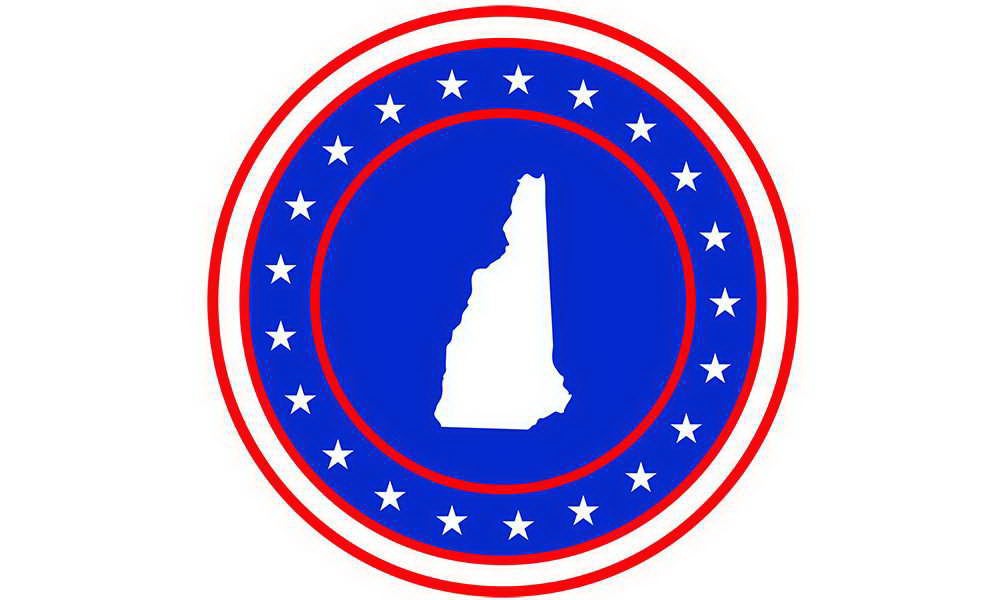


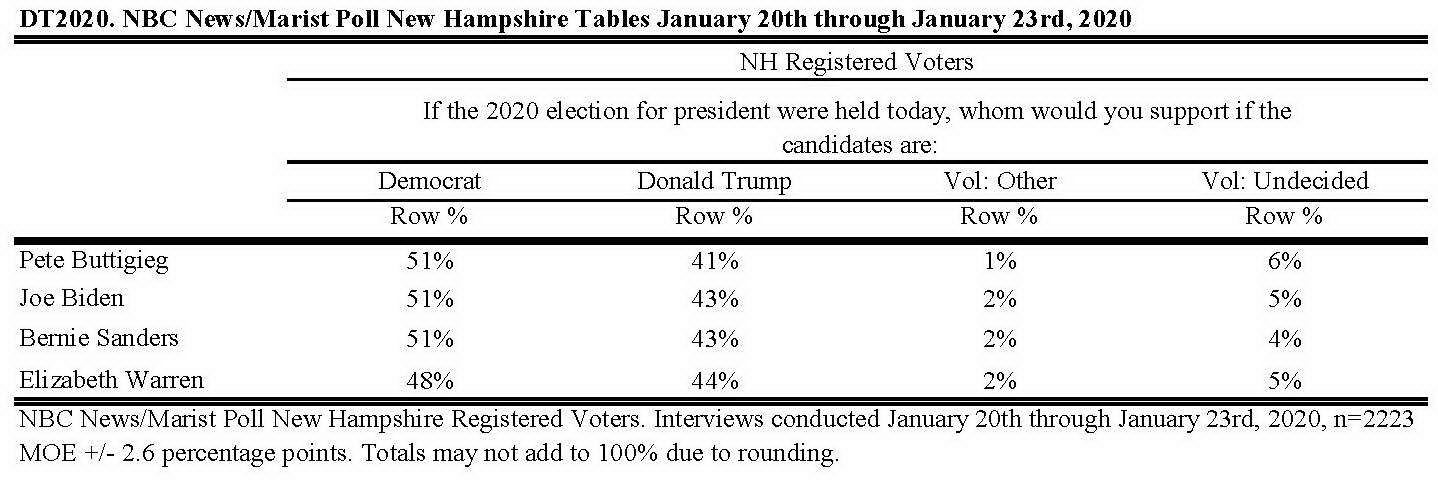 “President Trump is pretty much getting only his approval rating in head-to-head matchups against the top-tier Democrats,” says Dr. Lee M. Miringoff, Director of The Marist College Institute for Public Opinion.
“President Trump is pretty much getting only his approval rating in head-to-head matchups against the top-tier Democrats,” says Dr. Lee M. Miringoff, Director of The Marist College Institute for Public Opinion.